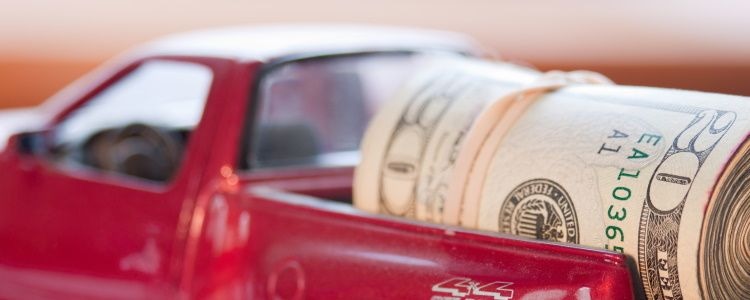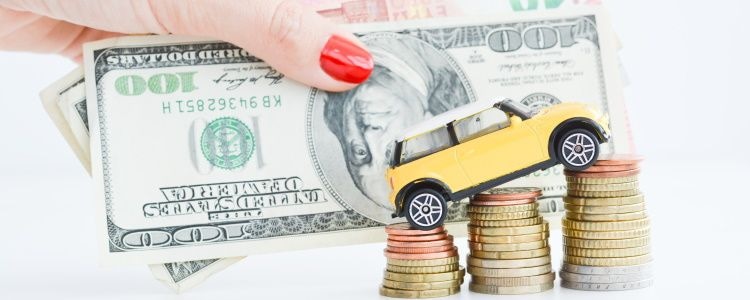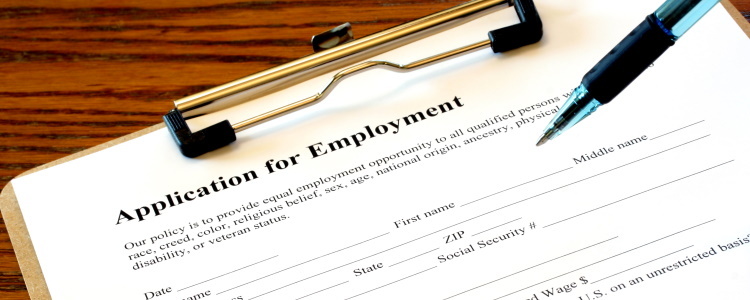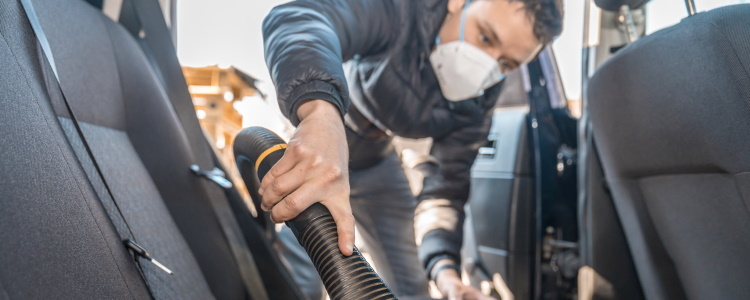Even though most borrowers dislike making a down payment, it's often a requirement for getting a car loan. And, sure, there are plenty of reasons you could make a down payment on a car loan, but are there reasons you shouldn't? We're outlining four reasons you might have for not making a down payment, and what the possible outcomes could be.
1. "I have enough cash to pay for the vehicle outright."
Buying a car with cash is great if you can afford it. Buying a car with cash can be a good experience if you can afford it because it allows you to own the vehicle free and clear. You don't have to worry about things like loan default, auto repossession, or monthly payments. You also won't have to pay for full coverage auto insurance if you don't want to (but it's required when you finance).
Vehicles are expensive, though. Right now they're especially high due to markups resulting from the inventory shortages being experienced throughout the industry. Cars are the second most expensive thing that many Americans buy, and new ones are getting more expensive each year. According to Kelley Blue Book, the price of new cars passed the $47,000 mark in December 2021. This new record high for car prices was up almost 14% year over year. In the first quarter of 2022, dealers are expected to see a 126% increase in profit from 2021, according to predictions from JD Power.
How much cash are we talking about? Having enough cash to buy a vehicle outright is great, but you have to take into account what kind of car you can get for the money. If you only have a few thousand dollars to spend, you may be able to get into a used one, but then you have to keep up with the cost of maintenance, fuel, and repairs. The older a vehicle is the cheaper it may be to buy, but the more it could cost to keep running, too.
Think of the big picture. Additionally, if you're a credit-challenged consumer, using that cash as a substantial down payment on an affordable, reliable used vehicle such as a certified pre-owned (CPO) car might make more long-term sense. These vehicles are typically only a few years old and often have only had one owner. Plus, they come with a manufacturer-backed warranty that can bring you more peace of mind than a cheaper, non-certified used car.
2. "A down payment doesn't make a big difference."
Down payments are a bad idea. This is perhaps the biggest misconception someone may have about making a down payment on an auto loan. A substantial down payment is the biggest favor you can do yourself when getting auto financing. Down payments decrease the amount you're borrowing, saving you in every aspect of the process.
A down payment cuts down on the initial cost of the car you're financing. By borrowing less money you're saving in the long run by cutting down on the interest charges you have to pay. If you're a bad credit borrower, a decent down payment is even more important, and usually required.
You may not be able to get around a down payment. Most borrowers who need a subprime auto loan are required to make a down payment of at least $1,000 or 10% of the vehicle’s selling price. This varies by lender, though, sometimes they accept the lower of the two amounts, and sometimes, you're expected to bring a specific amount of money to the table.
Auto loans often require down payments. Often people are surprised by the amount of money needed upfront when they sign their loan contract. There's an old adage that rang true for many years, and it's still recommended. The saying goes that you should put down at least 10% of the vehicle's selling price on a used car, and 20% of the selling price on a new one.
How much down payment is recommended? Twenty percent or more is the down payment amount recommendation if you're trying to battle depreciation, which is the vehicle's loss of value over time. It can't be stopped, but making a large down payment gives you a cushion between the value of the car and the amount you owe on the loan. If your loan amount is higher than the value of your vehicle, you're in a negative equity position, which can hurt your chances of using your car's value down the road.
3. "They're asking for too much money upfront."
Use a trade-in vehicle to help cut costs. You also don’t need to use just cash to meet a down payment requirement, because trade-in equity can help. If you have a trade-in with equity, you can use that car’s value to meet a down payment requirement and lower the cost of auto financing.
Down payments often equal options. Besides being a qualification for auto loan approval, down payments can also change the terms of your contract. Depending on your situation, the more money you use as a down payment, the more options you may open up. These options could include a shorter loan term, a lower monthly payment, a lower interest rate, more savings, and possibly the chance of financing a more expensive vehicle.
Down payments vary by vehicle. If you believe your down payment requirement is too high for a specific car, then it may be a better idea to opt for a less expensive one. The more you’re asking to borrow, the higher your down payment requirement is likely to be.
4. "I need a car now, and don't have time to save for one."
Even BHPH dealers require down payments. If you're truly in a bind and need a car now, you may need a down payment more than ever. Even small buy here pay here (BHPH) dealers require borrowers to bring in a down payment for the privilege of driving off the lot with a vehicle they haven't finished paying for. BHPH lots only sell used cars, but they often require a down payment of around 20% of a vehicle's selling price.
Add a co-borrower to help get approved. You could get around this if you apply for a loan with a co-borrower, such as a spouse. In a joint auto loan, your income and that of the co-borrower are combined, allowing you to get a loan you may not qualify for on your own. Your co-borrower may be able to help you meet the down payment stipulation to get into the vehicle you need. There are a lot of stipulations and requirements for joint auto loans, so be sure to know what you're getting into ahead of time.
Down Payments Impact Your Auto Loan
No matter what reasons you have for not wanting to make a down payment on your next car loan, know that it can be one of the top ways to get into the auto loan you're looking for. At the very least, you need to meet a lender's minimum down payment requirement. But, if you want to increase your chances of auto loan approval, bringing a bigger than expected down payment to the table could be the key.
Remember, the bigger your down payment, the more you can save in the end. This can be a big deal if you have poor credit and only qualify for lending at a high interest rate.
If you haven't been saving for a down payment because you think your credit score is too low for a car loan, think again! There are lenders all across the country that have the ability to work with credit-challenged consumers.
















